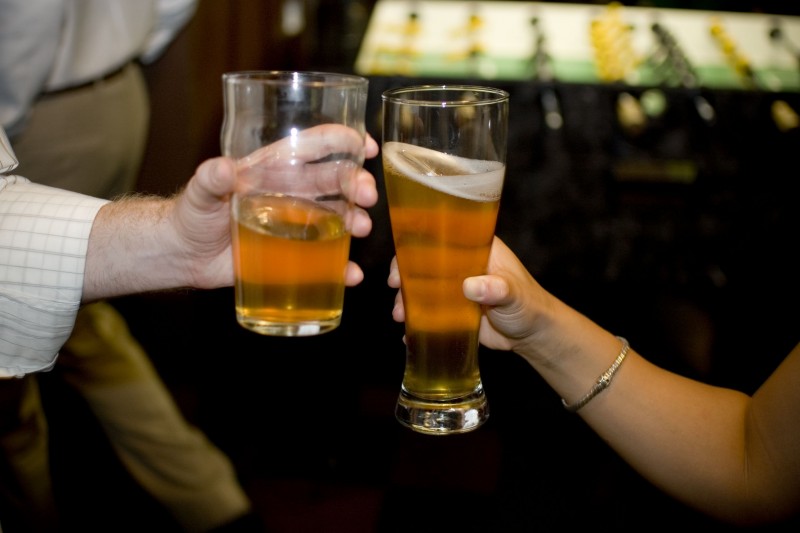Here’s the secret to avoiding a hangover this holiday.
Don’t drink.
Or at least drink in moderation, doctors say.
OK, if you know yourself too well and can’t help but over-enjoy Auntie Mary’s holiday punch or you really, really think the office owes you as much top shelf booze as you can consume to make up for all those extra hours, then you may want to read this carefully. Preferably in a dark room without a lot of noise if you just desperately did an Internet search for “hangover cure.”
If you do overindulge this festive season, you certainly are not alone. So many people binge during the holidays that there is a medical nickname associated with one of the conditions it causes. “Holiday heart syndrome” is when your heart beats irregularly or too fast after having too much to drink.
Thankfully, hangovers aren’t all that serious.
But all lightheartedness aside, drinking too much alcohol can be a serious problem for people and can take a real toll on your health. Alcohol causes a fatal car crash every 51 minutes, according to the Centers for Disease Control and Prevention.
But let’s say you had a designated driver, and the merrymaking you did got out of hand just this once, then you may still want to know what to do. Here is what doctors suggest. This is not the advice your Uncle Bill will tell you about that helped him through his military days.
A hangover, in case you are in that small percentage of people who don’t experience them, is that unpleasant feeling your body will have after a night of heavy drinking. Symptoms include being tired, thirsty, having a headache or muscle aches, sleeping poorly, suffering from an increased sensitivity to light and sound, dizziness, red eyes, shakiness, depression and an inability to concentrate.
Scientifically speaking, what cures a hangover is hard to know. That’s because what we know about hangovers is still a little murky.
“The problem is, we still don’t know exactly what about drinking causes a hangover, so it’s difficult to know exactly what will prevent one, other than drinking little or not at all,” said Dr. Sharon Horesh Bergquist.
Bergquist is a doctor at Emory Healthcare and an assistant professor of medicine.
What scientists do know about hangovers, she says, is that alcohol, when consumed in excess, can do a real number on your system.
It makes you want to run to the bathroom more and that can lead to dehydration. That process is what causes the thirst, dizziness and the light-headedness you feel.
It can also trigger an inflammatory response from your immune system. That can hurt your ability to concentrate. It can hurt your memory. It can make you feel lethargic.
Drinking alcohol in excess can cause your blood sugar to fall. If it dips too low it can cause a shakiness and weakness, even seizures.
Alcohol can cause your blood vessels to expand, which can cause headaches.
It can irritate the lining of your stomach, making you nauseous.
Bergquist says everyone metabolizes alcohol a little differently. Some people will get a hangover after having just a couple of drinks. Others will be able to drink much more.
You can’t stop a hangover, but, she says, there are a few ways you can improve your symptoms.
Drinking water as you consume alcohol can help with the dehydration issue.
“That does not improve your concentration or loss of spatial relation skills that come with a hangover, though,” she says.
Eating a little something can help your stomach. But eating greasy food to soak up the alcohol better, as some people will tell you, is a myth. In fact, that greasy stuff may irritate your stomach more. Instead, Bergquist suggests eating some healthy protein and carbohydrates.
But other than avoiding alcohol altogether, the only other way to ease your symptoms is simple.
“Rest is the one way you can really help yourself,” Bergquist said.
So, take advantage of your holiday time off and sleep it off. You will feel better, eventually.
